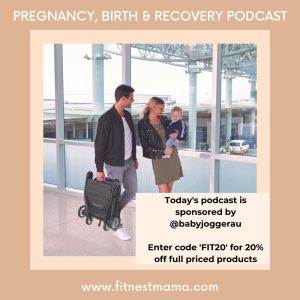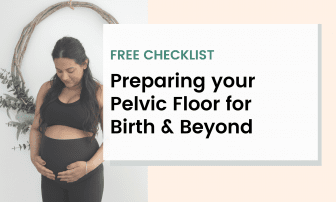In this podcast episode with Helena McDonald, we delved into the important topic of exercise and movement during pregnancy, particularly for those dealing with gestational diabetes. We discuss some insights and valuable advice on how pregnant women with gestational diabetes can prioritise their well-being through safe and effective exercise.
Exploring the Benefits of Exercise During Pregnancy
There are many incredible benefits of staying active during pregnancy. These advantages are backed by research and can make a real difference in one’s journey. Not only does exercise help control blood pressure, but it also significantly reduces the risk of gestational diabetes. Beyond that, it serves as a powerful tool to prevent excessive weight gain and offers remarkable mental health benefits. For more information about the benefits of exercise during pregnancy, Diabetes Australia has some great resources.
Discovering Suitable Exercise Options
Our discussion covered an array of exercises that are perfectly suited for pregnant women, including those managing gestational diabetes. Drawing from my experience as a physiotherapist and a mum of three, I recommended activities like walking, swimming (with special considerations for pelvic girdle pain), and Pilates. The emphasis on pelvic floor and core exercises is crucial, as these are vital for preventing common issues such as incontinence and pelvic organ prolapse.
Understanding Exercise Intensity and Duration
The episode also delved into the often-asked question: “How much exercise is just right?” Recent research has shown that even shorter bursts of activity, like a brisk 10-minute walk after meals, can offer similar benefits to longer sessions. I discussed the concept of the “talk test,” an easy way for pregnant women to gauge their exercise intensity by ensuring they can maintain a conversation during the workout.
Navigating Exercise Restrictions with Care
We acknowledged that certain medical conditions might require exercise restrictions. For instance, complications like pre-eclampsia, placental issues, or preterm labour could necessitate adjustments to your exercise routine. It’s crucial to always prioritise safety for both the mother and the baby, seeking guidance from healthcare professionals when needed.
Embracing Exercise as Part of Your Lifestyle
I’m a firm advocate of integrating exercise into one’s daily routine, especially for busy mums. The episode strongly encourages finding manageable exercise routines. Even short, consistent workouts – as brief as three minutes – can create a significant impact when it comes to building positive exercise habits. The key is finding exercises that seamlessly fit into your schedule.
Customising Exercise for Experienced Individuals
We also addressed the concerns of experienced exercisers who become pregnant. My advice is to continue exercises that feel comfortable, while being mindful of factors like overheating. Additionally, certain positions are best avoided after the first trimester. Modifying exercises and being aware of the pelvic floor and core area is also important.
Postpartum Recovery and the FitNest Mama Program
In the latter part of the episode, we touched on postpartum recovery. I introduced the FitNest Mama postnatal online workout program, an app designed for pregnancy, birth, and recovery. This app offers tailored workouts that can seamlessly become a part of your daily life, aiding in your journey towards recovery and well-being.
With so much valuable information to unpack, this episode is an absolute must-listen for all expecting mothers. Whether you’re navigating gestational diabetes or simply want to maintain a healthy pregnancy, the insights shared will empower you to prioritise your well-being through exercise.
** This podcast has general information only. Always seek the guidance of your doctor or other qualified health professional with any questions or concerns you may have regarding your health or medical condition.
Podcast Sponsor
This podcast is sponsored by Baby Jogger, who have kindly provided a discount code for 20% off any full priced product. Use Code ‘FIT20’.
Check it out at www.babyjoggerstrollers.com.au.

Episode Links
Preparing for birth Pelvic health checklist
Free 7 Day Trial Pregnancy Workouts
Free 7 Day Trial Postnatal Workouts
Instagram @fitnestmama
Helena’s website: https://nutritionbyhelena.com/
Gestational Diabetes Club Podcast
Previous episodes about Gestational Diabetes:
EP 11: Why Pregnant Women Shouldn’t Feel Guilty if Diagnosed with Gestational Diabetes with Dr Tom Cade
EP 17: Understanding Gestational diabetes, and how to manage it with lifestyle changes in pregnancy





